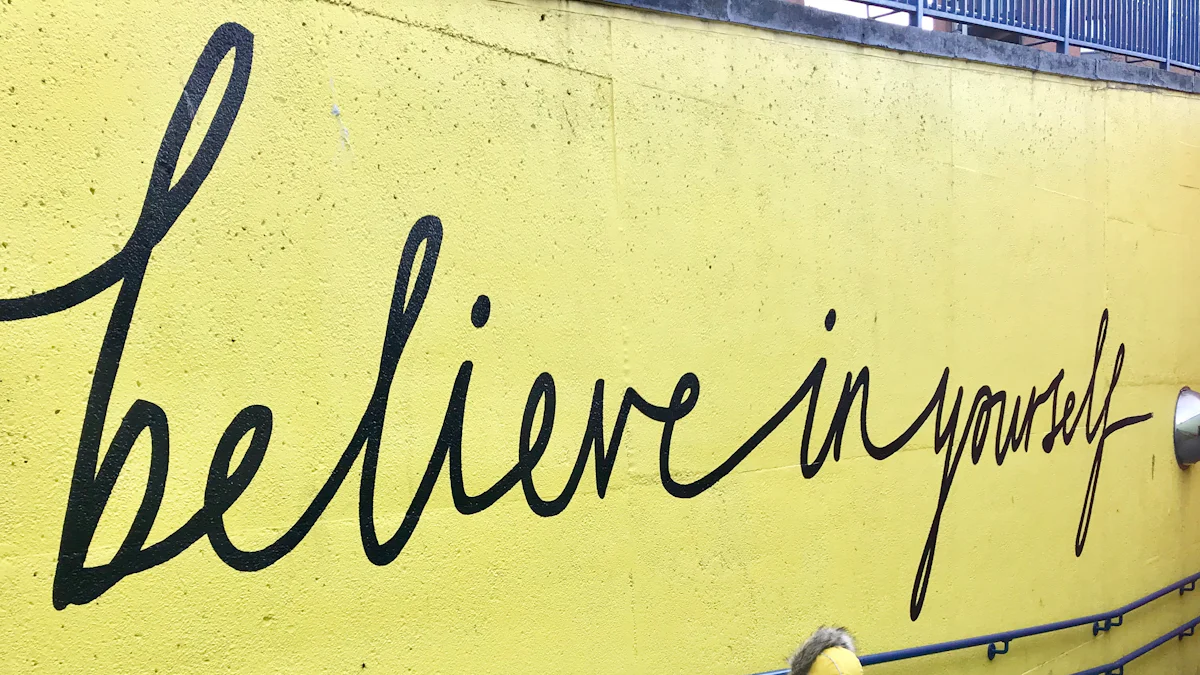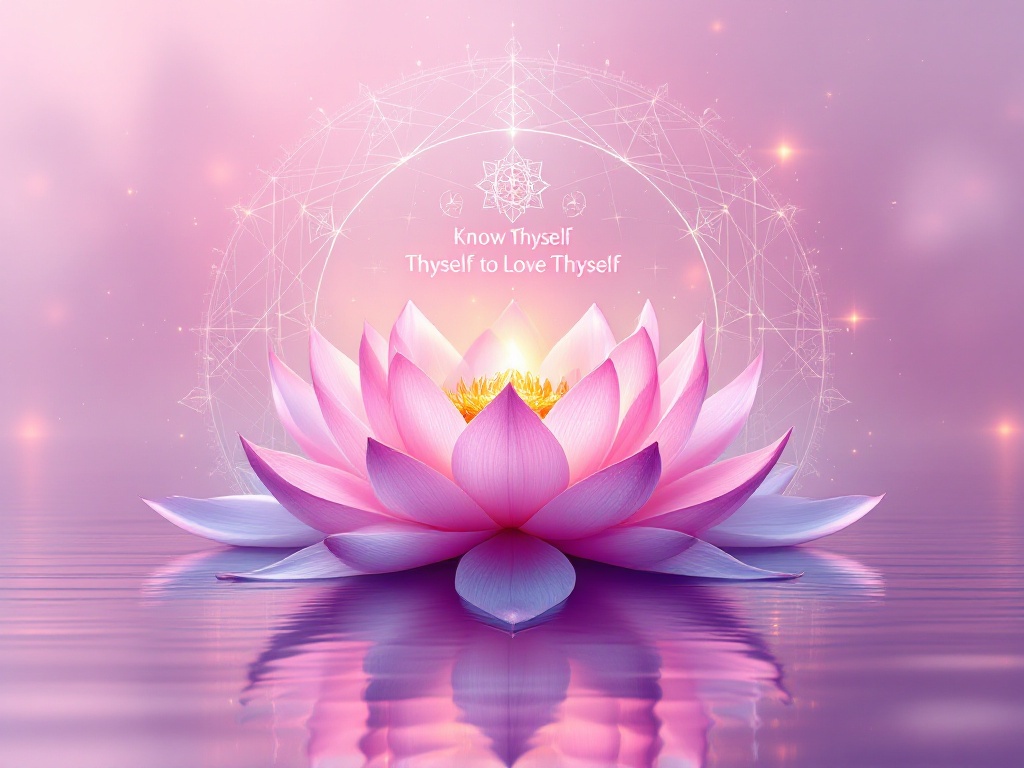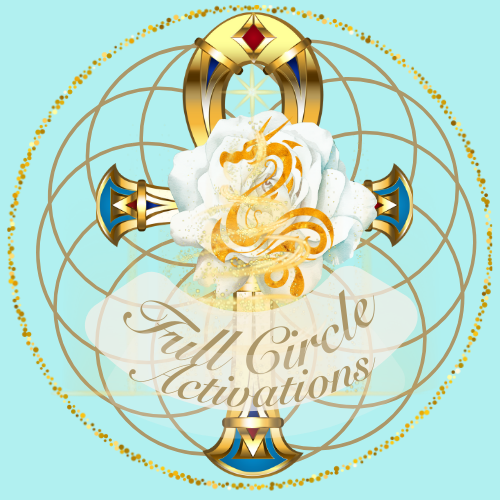What does unconditional self-love look like in daily life?

Unconditional self-love means accepting and valuing yourself without conditions. It’s about seeing your worth, even when life feels overwhelming. When you love yourself unconditionally, you build emotional resilience and unlock a sense of inner peace. This practice strengthens your self-confidence and helps you navigate challenges with grace.
To cultivate this love, start small. Breathe deeply during stressful moments and affirm your self-worth. Spend time alone journaling or meditating to connect with your inner self. Replace self-criticism with kind, encouraging words. These daily practices remind you to value and respect yourself, nurturing a relationship rooted in compassion and care.
Key Takeaways
Loving yourself unconditionally means liking who you are always. It helps you stay strong and calm inside.
Forget past mistakes by thinking about what you learned. Focus on how you’ve improved instead of being hard on yourself.
Talk kindly to yourself by spotting bad thoughts and changing them. Say positive things to feel better about yourself.
Take care of yourself by planning things that help your body and mind. Do fun activities that make you happy.
Love both your good and not-so-good sides. Accepting all of you helps you grow and be kind to yourself.
Let go of the past and embrace self-acceptance
Release guilt and shame
Acknowledge past mistakes without judgment
Your past does not define you. Mistakes are part of life, and they shape who you are today. Instead of judging yourself harshly, take a moment to reflect. Journaling can help you process overwhelming thoughts and emotions. Write down what happened, how it made you feel, and what you learned. This practice allows you to release guilt and focus on growth. Visualization is another powerful tool. Picture the person or situation tied to your guilt. Imagine asking for forgiveness and letting go of the burden. Forgiving yourself is an act of love and acceptance, freeing you to move forward with clarity.
Focus on lessons learned rather than self-criticism
Every experience, even the difficult ones, carries a lesson. Shift your focus from what went wrong to what you gained. Did you grow stronger? Did you learn something new about yourself? When you view mistakes as opportunities for growth, they lose their power to hold you back. Remember, self-acceptance begins when you stop criticizing yourself and start appreciating the wisdom you’ve gained.
Embrace your imperfections
Recognize that flaws are part of being human
Nobody is perfect, and that’s okay. Your imperfections make you unique and relatable. When you embrace them, you open the door to self-compassion. Mistakes become desirable because they teach you valuable lessons. Flaws become beautiful because they remind you of your humanity. As one person shared, “I learned to see these experiences not as signs of weakness but as opportunities for growth.” This mindset helps you love and accept yourself fully.
Practice gratitude for your unique qualities
Take a moment to celebrate what makes you, you. Maybe it’s your creativity, your sense of humor, or your resilience. Make a list of these qualities and reflect on how they’ve shaped your journey. Gratitude shifts your focus from what you lack to what you have. When you appreciate your uniqueness, you cultivate love and acceptance for yourself and others.
Cultivate positive self-talk and manage inner dialogue
Identify negative self-talk patterns
Pay attention to critical or self-defeating thoughts
Negative self-talk often sneaks into your mind as automatic thoughts. These thoughts criticize you and distort how you see yourself. Common patterns include personalizing, where you blame yourself for things beyond your control, and magnifying, which makes you focus only on the negatives while ignoring the positives. Catastrophizing leads you to expect the worst outcomes, while polarizing makes you see situations as all good or all bad. Mind reading assumes others are judging you negatively. These patterns can increase anxiety, lower self-esteem, and even affect your physical health. Start by noticing these thoughts. Write them down when they arise. Awareness is the first step toward change.
Challenge and reframe these thoughts with kindness
Once you recognize negative patterns, challenge them. Ask yourself, “Is this thought based on facts, or is it just my perception?” Use positive reframing to shift your perspective. For example, instead of thinking, “I failed, so I’m not good enough,” try, “This setback taught me something valuable.” Focus your attention on the good in every situation. By examining the evidence and considering alternative outcomes, you can replace self-defeating thoughts with empowering ones.
Use affirmations and empowering language
Create a list of affirmations that resonate with you
Affirmations are powerful tools for building self-esteem. Create a list of statements that uplift and inspire you. Examples include, “I am a masterpiece, constantly evolving and transforming,” or “My mistakes don’t define me; they guide me.” Choose affirmations that feel authentic to you. Write them in a journal or on sticky notes where you’ll see them daily.
Repeat them daily to reinforce positive beliefs
Repetition strengthens your belief in these affirmations. Say them aloud each morning or during moments of doubt. Over time, these words will replace negativity with positivity. For instance, repeating, “I embrace all that makes me unique,” can help you see your individuality as a strength. This practice nurtures self-love and helps you approach life with confidence and optimism.
Prioritize self-care and do stuff that makes you happy

Create a self-care routine
Schedule time for physical, emotional, and mental well-being
Your well-being deserves attention every day. Start by carving out time for activities that nurture your body, mind, and emotions. Exercise boosts your energy and improves your mood. Meditation helps you find calm and clarity. Journaling allows you to process emotions and reflect on your journey. These practices create balance and help you feel grounded.
To build an effective self-care routine, follow these steps:
Find what makes you feel centered. Identify activities that bring you peace and joy.
Brainstorm how you can incorporate those things into your daily life. Start small by adding one new self-care practice at a time.
Consistency is key. Even a few minutes each day can make a big difference.
Include activities like exercise, meditation, or journaling
Physical movement, mindfulness, and self-expression are powerful tools for self-care. A brisk walk in nature can refresh your spirit. Meditation can help you connect with your inner self. Writing in a journal can release pent-up emotions and spark creativity. Choose activities that resonate with you and make them part of your daily routine.
Engage in hobbies and passions
Dedicate time to activities that spark joy and creativity
Hobbies and passions are more than just pastimes. They are gateways to joy and fulfillment. Whether it’s painting, gardening, or playing an instrument, these activities allow you to express yourself and enter a state of flow. This immersion reduces stress and creates more happiness in your life.
Engaging in creative pursuits also improves your mood and boosts your self-esteem. Completing a project or learning a new skill fills you with pride and confidence. It’s a reminder of your capabilities and potential.
Allow yourself to enjoy these moments without guilt
You deserve to do stuff that makes you happy. Let go of the idea that self-care or hobbies are indulgent. They are essential for your well-being. When you immerse yourself in activities you love, you heal emotionally and strengthen your connection to yourself. These moments of joy recharge your spirit and inspire you to keep growing.
By prioritizing self-care and embracing your passions, you create a life filled with balance, creativity, and happiness.
Practice self-forgiveness and self-compassion
Let go of perfectionism
Accept that mistakes are part of growth
Perfectionism can weigh you down, making you feel like you’re never enough. But mistakes are not failures; they are stepping stones to growth. Each misstep teaches you something valuable about yourself and the world around you. When you accept this truth, you free yourself from the unrealistic pressure to always get it right. Over time, practicing self-forgiveness improves your self-image and reduces the risk of anxiety or depression. It also enhances your self-worth and motivation, helping you move forward with confidence.
Focus on progress rather than perfection
Instead of striving for perfection, celebrate your progress. Small steps lead to big changes. Shift your perspective by asking yourself, “Will this matter in six months?” or “What advice would I give a friend in my position?” These questions help you see the bigger picture and let go of unnecessary stress. You can also try exposing yourself to imperfections. For example, allow yourself to make small mistakes, like leaving a mess or being slightly late. These actions help you stop comparing yourself to impossible standards and embrace the beauty of being human.
Be kind to yourself during tough times
Treat yourself as you would a close friend
When life feels overwhelming, remember to treat yourself with the same kindness you’d offer a friend. Imagine a friend facing the same challenges. What would you say to comfort them? Now, say those words to yourself. This practice helps you build a compassionate inner voice that supports you through difficult moments.
Use self-compassion exercises, such as writing a supportive letter to yourself
Self-compassion exercises can guide you through tough times. Start by acknowledging your feelings with phrases like, “This is a moment of suffering.” Remind yourself that struggles are a universal part of life. Then, offer yourself kindness by saying, “May I be kind to myself.” Another powerful exercise involves writing a letter to yourself. Reflect on a challenging situation, notice your reaction, and imagine how you’d support a friend in the same position. Write down those supportive words and read them when you need encouragement. These practices help you love yourself unconditionally and build resilience.
Remember, self-forgiveness and self-compassion are not about ignoring your flaws. They are about embracing your humanity and choosing to grow from every experience.
Honor your intuitive wisdom and set sacred boundaries
Listen to your inner voice
Practice mindfulness to connect with your intuition
Your intuition is a powerful guide, but it often gets drowned out by the noise of daily life. Mindfulness can help you reconnect with this inner wisdom. By practicing mindfulness, you quiet your rational mind and create space to listen to your deeper knowing. This practice enhances clarity and confidence, making decision-making easier.
Here are some mindfulness practices to help you connect with your intuition:
Take a few moments each day to sit in silence and focus on your breath.
Observe your thoughts without judgment, letting them pass like clouds in the sky.
Spend time in nature, paying attention to the sights, sounds, and sensations around you.
These practices not only calm your mind but also increase your sensitivity to intuitive knowledge. Regular mindfulness breaks allow you to integrate intuition into your daily life, helping you navigate challenges with greater ease.
Trust your instincts when making decisions
Your instincts are there for a reason. They often know what’s best for you before your logical mind catches up. When faced with a decision, pause and ask yourself, “What feels right?” Trust the answer that comes from within. Over time, relying on your intuition builds self-trust and strengthens your ability to make choices aligned with your true self.
Establish and maintain boundaries
Identify areas where you need to set limits
Boundaries are essential for protecting your energy and well-being. Start by identifying areas in your life where you feel drained or overwhelmed. Is it a demanding work schedule? A relationship that feels one-sided? Recognizing these areas is the first step toward creating balance.
Setting boundaries helps you focus on yourself and your needs. It allows you to align your actions with your values and beliefs. This process not only enhances your mental health but also builds a stronger sense of identity and independence.
Communicate your boundaries with clarity and confidence
Once you’ve identified your limits, communicate them clearly. Use “I” statements to express your needs, such as, “I need time to recharge after work.” Speak with confidence, knowing that setting boundaries is an act of self-respect.
Establishing boundaries can improve your emotional well-being and prevent burnout. It creates a sense of security in your surroundings, allowing you to thrive. When you honor your boundaries, you show yourself the love and care you deserve.
Remember, your intuition and boundaries are sacred tools. They guide you toward a life of balance, authenticity, and self-love.
Celebrate individuality and personal achievements

Recognize your strengths and talents
Make a list of qualities you admire about yourself
Take a moment to reflect on what makes you unique. Write down the qualities you admire most about yourself. Maybe you’re compassionate, creative, or resilient. Tools like the VIA character strengths survey can help you identify these traits. This process allows you to articulate your strengths and see yourself in a positive light. You can also observe your daily actions and ask yourself what energizes you. Questions like, “What do I enjoy doing?” or “What do others appreciate about me?” can guide your self-discovery. Recognizing these qualities helps you focus on your strengths and build a foundation of self-confidence.
Reflect on how these qualities have positively impacted your life
Think about how your strengths have shaped your journey. Perhaps your determination helped you overcome a challenge, or your empathy strengthened your relationships. Reflecting on these moments enhances your self-esteem and reminds you of your capabilities. This practice also nurtures a positive mindset, encouraging you to value and respect yourself. By appreciating your progress, you create a sense of gratitude and motivation to keep growing.
Celebrate small wins
Acknowledge and reward yourself for daily accomplishments
Every achievement, no matter how small, deserves recognition. Did you complete a task you’ve been putting off? Did you take a step toward a personal goal? Acknowledge and give yourself credit for these moments. Track your progress in a journal or app to see how far you’ve come. Treat yourself to a small reward, like a favorite snack or a walk outside. Sharing your wins with loved ones can also amplify the joy and create a sense of community. These simple acts nurture resilience and reinforce your motivation to keep moving forward.
Use these moments to build self-confidence and motivation
Celebrating small successes fosters a growth mindset. It helps you view setbacks as opportunities to learn and grow. Reflecting on your wins reminds you of your ability to overcome challenges and achieve your goals. This practice also triggers the release of dopamine, boosting your happiness and well-being. By focusing on your achievements, you shift your attention from past failures or future worries to the present moment. These celebrations inspire you to continue striving for excellence and embracing your individuality.
Remember, every step forward is worth celebrating. By honoring your strengths and achievements, you cultivate a deeper connection with yourself and unlock your full potential.
Embrace both light and shadow
Accept all parts of yourself
Acknowledge your strengths and weaknesses without judgment
You are a blend of light and shadow, strengths and weaknesses. Acknowledge both without judgment. Your strengths highlight your unique gifts, while your weaknesses offer opportunities for growth. Reflect on how your strengths have shaped your journey. At the same time, recognize that your challenges have taught you resilience and courage. Shadow work, which involves facing emotions like guilt, anger, or fear, can lead to profound personal growth. By confronting these feelings, you gain clarity and self-awareness. This process helps you understand your reactions and behaviors, fostering a deeper connection with yourself.
Understand that both light and shadow contribute to your growth
Your light inspires you to shine, while your shadow teaches you to heal. Both are essential for your journey. Embracing your shadow allows you to transform negative emotions into tools for growth. Ask yourself reflective questions like, “What can I learn from this feeling?” or “How can this experience help me grow?” This self-exploration enhances empathy, helping you accept your imperfections and those of others. It also encourages honest self-expression, leading to a more authentic and balanced life. By welcoming both light and shadow, you create space for healing and transformation.
Practice divine self-compassion
Show yourself kindness during moments of vulnerability
Vulnerability is a natural part of being human. During these moments, treat yourself with kindness. Imagine how you would comfort a friend in a similar situation, and offer yourself the same support. Meditation can help you respond to challenges with grace instead of reacting impulsively. By noticing your thoughts and emotions, you create a safe space for healing. Setting healthy boundaries also nurtures your mental health, allowing you to live with greater peace and presence.
Engage in practices that nurture your emotional and spiritual well-being
Nurturing your emotional and spiritual well-being strengthens your connection to yourself. Create a list of people, places, and experiences that bring you joy and expansion. Spend time outdoors, soaking in the beauty of nature. Share meaningful moments with loved ones, like enjoying meals together. Fully engage in activities that align with your values, such as helping others or practicing mindfulness. These practices ground you and remind you of your inner strength. By prioritizing your well-being, you honor your divine essence and cultivate unconditional self-love.
Remember, embracing both light and shadow allows you to grow into your most authentic self. Show yourself compassion, and watch as your inner light shines brighter than ever.
Unconditional self-love is a journey that transforms your life. By embracing self-acceptance, practicing positive self-talk, and prioritizing self-care, you nurture your emotional and mental well-being. Forgiving yourself, honoring your intuition, and embracing both your light and shadow help you grow into the best versions of ourselves.
This journey requires patience and daily effort. Start small by becoming aware of your thoughts and practicing gratitude. Celebrate every step forward, no matter how small. Trust in your ability to cultivate self-love and watch as it strengthens your resilience, confidence, and joy.
Remember, self-love is not a destination but a lifelong practice of compassion and care.
FAQ
What is the first step to practicing unconditional self-love?
Start by acknowledging your worth. Take a moment each day to affirm that you deserve love and care. Small actions like journaling or repeating positive affirmations can help you build this foundation. Remember, self-love begins with recognizing your value.
How can I stop negative self-talk?
Pay attention to your inner dialogue. When you notice critical thoughts, pause and reframe them with kindness. Replace “I’m not good enough” with “I’m learning and growing every day.” Over time, this practice strengthens your confidence and silences negativity.
Why is setting boundaries important for self-love?
Boundaries protect your energy and well-being. They help you prioritize your needs and create balance in your life. By setting limits, you show yourself respect and create space for growth. Clear boundaries also improve relationships by fostering mutual understanding.
How do I embrace my imperfections?
Recognize that flaws make you human. Instead of focusing on what you lack, celebrate your unique qualities. Gratitude shifts your mindset and helps you see imperfections as opportunities for growth. Loving yourself means accepting every part of who you are.
Can self-love improve my relationships?
Yes! When you love yourself, you set the tone for how others treat you. Self-love builds confidence, making it easier to communicate your needs and boundaries. It also fosters empathy, helping you connect with others authentically and strengthen your bonds.
See Also
Nurturing Self-Love and Awareness Without Conditions
Embracing Divine Feminine Energy to Foster Self-Love
Your 2024 Journey to Self-Knowledge and Divine Love

Discover Your Divine Sovereign Design

